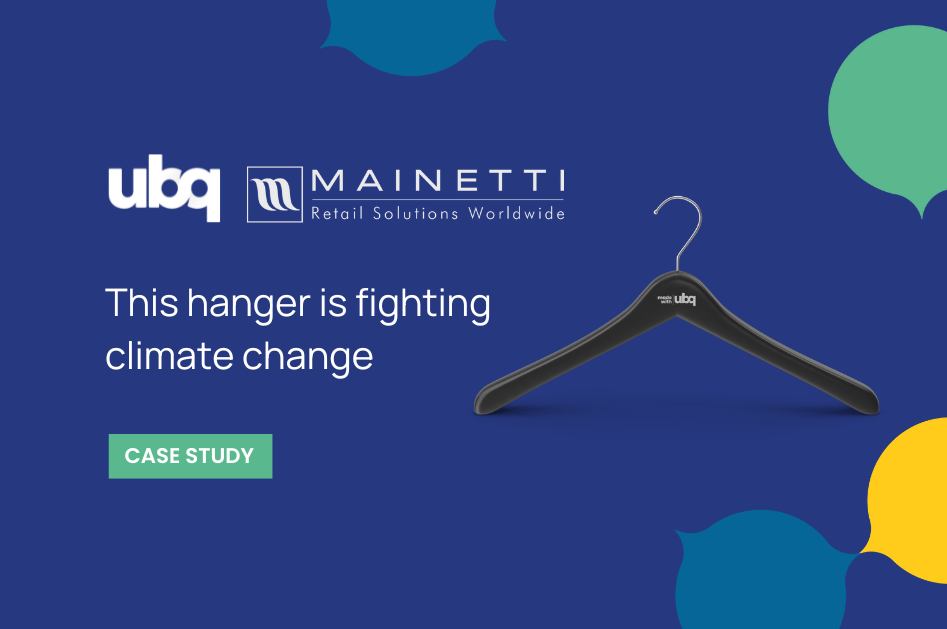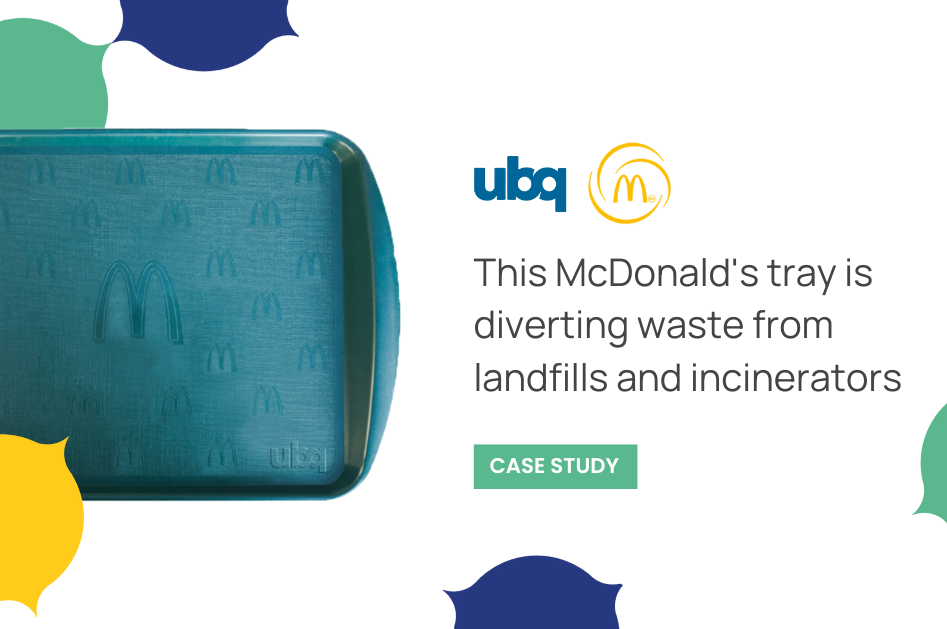About Mainetti
As the world of fashion and retail has evolved, so too has Mainetti. A company that started as a plastic garment hanger manufacturer co-founded by a skilled Italian racing car mechanic has today turned into a world leader in providing pioneering solutions that solve real retail problems. Mainetti is also leading the charge in minimizing its environmental impact while contributing to the communities in which it operates. It continually develops new technologies and processing methods to further its sustainability goals.
The worldwide retail solutions provider is guided by a vision to provide its customers with products, services, and solutions that reflect its commitment to consistent, sustainable innovation. It aims to deliver real value in quality, price, and environmental impact while creating a safe and positive work environment for its more than 6,000 valued employees.
Mainetti recently teamed up with UBQ Materials to create sustainable products using its climate-positive raw material. The company “is proud to be driving meaningful change with this new, innovative offering,” says Mainetti’s CEO, Roberto Peruzzo. “UBQ’s best-in-class technology, paired with our global footprint as the leading retail solutions provider,” he said, “will allow us to help the fashion industry revolutionize sustainable practices and have a lasting impact on the planet.”
The Discovery
Mainetti’s Director of Sustainability for the Far East was the first to discover what he called a “miracle material” that could drop easily into the company’s manufacturing processes while providing incredible climate-positive benefits.
That was music to UBQ’s ears. The company invested a lot of time before coming to market to ensure that its material’s implementation would be as seamless as possible for manufacturers. The two companies also shared the view that achieving sustainability required a holistic approach. Every stage of a product’s lifecycle, including raw materials, manufacturing, and reuse and recycling need to play a role in addressing climate change. This includes reduced use of fossil fuels, minimizing the use of natural resources, striving to achieve zero waste, and committing to a truly circular economy where people, planet, and profits coexist.
The Challenge
Mainetti is the world’s largest provider of garment hangers and has 6,000 employees in 90 locations on six continents. As a processor of raw materials and then a reuser and recycler, Mainetti is continually searching for groundbreaking products that bring value to consumers and that offset the carbon footprint in polypropylene garment hanger production. Its sustainability efforts have seen the company’s total carbon footprint drop 22% since 2012, and it continues on a downward trajectory.
The two biggest challenges in integrating UBQ™ material into Mainetti’s products were testing and compliance. As UBQ has learned, people are at first skeptical that unsorted residual waste comprising things like banana peels, cardboard, dirty plastics, and baby diapers can be used as production feedstock and meet industry requirements.
Could UBQ’s innovative thermoplastic material be the ideal solution some at Mainetti believed it was?
The Process
There were those for whom the prospect did seem too good to be true. So, in early 2020 the company sent a team to Israel to go over the process with UBQ Materials’ VP of Sales, Sophie Tuviahu, and her team. While there, the Mainetti team witnessed the entire process—from the arrival of the waste in a waste hauler truck all the way through to quality assurance.
Product trials including injection molding went exceptionally well, with UBQ™ having the same physical properties as all of Mainetti’s polypropylene products. UBQ™ material was successfully tested in all travel conditions, as Mainetti’s products tend to circle the world up to 8 times. Chemical testing results indicated compliance with worldwide regulations.
The rest, as Mainetti likes to say, was history, and the two companies are now well on their way to launching the project by early 2021 and forming a large partnership for the future. The company sees UBQ™ material as unlike any other sustainable material it’s tried and believes it’s as close to a drop-in technology as possible.
The Results
For Mainetti, whose product introduction lifecycle typically takes about a year, the 3-6 month turnaround with UBQ Materials bodes well for future sustainability collaborations. The company, in fact, plans to launch a new project range with a brand owner in the United States in Q1 of next year. And the company loves the adaptable, compatible, and easy-to-implement material so much that it’s been introducing UBQ to other brands and showing them what can be done when you pick the proper raw materials to make your products. An initial rollout of more than 1 million hangers made from UBQ™ is planned.
Both Mainetti and UBQ believe partnerships like theirs bring real value to consumers, reaching every home with a sustainable product that has a reduced carbon footprint using UBQ™ material. This perfectly aligns with UBQ’s goal of providing everyone, not only the plastics industry, with a more sustainable alternative to everyday products and with Mainetti’s goal to be the sustainability leader in the markets in which it operates.


